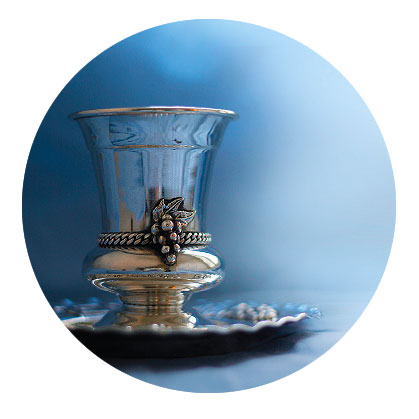In Hot Water

The goal of a Torah discussion is to reach one resolution
Therefore, it is said in the Book of the Wars of Hashem, ‘What He gave at the Yam Suf and the rivers of Arnon.’ ” (Bamidbar 21:14)

The Yam Suf, or Sea of Reeds, is referred to as “Sufa” in this pasuk. The Gemara in Kiddushin (30b) says, “Don’t read the word as ‘sufa,’ reeds, but rather as ‘sofa,’ the end.”
The Gemara explains that when a father and son, or a rebbi and talmid, are learning the same topic in Torah, they can appear as enemies until they once again are friends when they reach the end, the agreement.
This is the type of conflict that is called a machlokes l’Sheim Shamayim, a machlokes for the sake of Heaven. Such a conflict is not negative; it’s necessary. There’s tremendous benefit in utilizing such a heated discussion so that in the end, the ultimate truth is reached. (Rav Shimshon Pincus, Tiferes Shimshon)
A few months ago, my daughter moved to a new rental apartment. When we spoke a day later, I could hear the exhaustion in her voice as she described the many details of the move.
“Oh, and we have no hot water.”
It was February. Freezing cold. “How are you managing with that?”
“Meanwhile, I’m boiling water to bathe the baby, but the owner said he’s putting in a new dud [hot water heater] on the roof in two days.”
A week later, she still had no hot water. “It’s funny because the new dud was installed, but it’s not working. We’re calling an electrician.”
The electrician found the source of the issue. It wasn’t a case of crossed wires, but of crossed identities. Apparently, the man who installed the dud connected it to the neighbor’s pipes, throwing away their perfectly good hot water heater and leaving my daughter’s broken one.
There has always been machlokes within Bnei Yisrael. Machlokes in learning is a positive thing; it means revisiting and reexamining the topic to polish and clean it until you reach the point of truth within it.
Imagine if a person were to chew on a piece of bread, and his friend accused him of destroying the bread. The man would answer that he’s not destroying it; he’s extracting all the goodness within it, which will give him energy to live.
So, too, all the machlokes involved in a discussion of Torah is to extract the beautiful essence within it.
That was four months ago. With coronavirus raging, my daughter couldn’t even come to us to take hot showers. She kept pressuring the owner to fix her hot water, but he didn’t want to pay for a new dud when he’d already bought one. The neighbors had no interest in paying for a new heater when they’d had a perfectly good one that was thrown out. And the installer claimed that it wasn’t his problem. Maybe he needed a better map of the rooftop?
The loser in all this was my daughter’s family, sentenced to freezing faucets while the other parties continued to argue. They were in no hurry. They had hot water.
We see this concept with the halachah of Moavi v’lo Moavis. A male person from Moav may not convert and become part of Klal Yisrael. What about a female from Moav — such as Rus, the ancestor of Dovid Hamelech?
There was great conflict regarding this. Then Boaz explained that he had a mesorah that a female convert from Moav is fine, resolving the conflict.
The problem with conflict is when there’s no resolution at the end. If, after discussing the matter in depth, the two parties are still left with two opinions, then it’s like they are left with two Torahs. That is a terrible situation. The goal of a Torah discussion is to reach one resolution.
Last week my daughter called, a lilt in her voice. “We have hot water! We have a new dud!” You’d have thought she won the lottery.
I felt the same way. A lottery can’t hold a candle to a steaming hot shower. “How’d that happen?” I asked. “I thought no one was budging on their position.”
“They weren’t, so they all went to a din Torah. And you know what? When the beis din paskened, they all accepted the psak and we had a new dud 24 hours later.”
A tale of two duds. And the ending did justice to those who accept the law’s out of their hands.
(Originally featured in Family First, Issue 699)
Oops! We could not locate your form.


